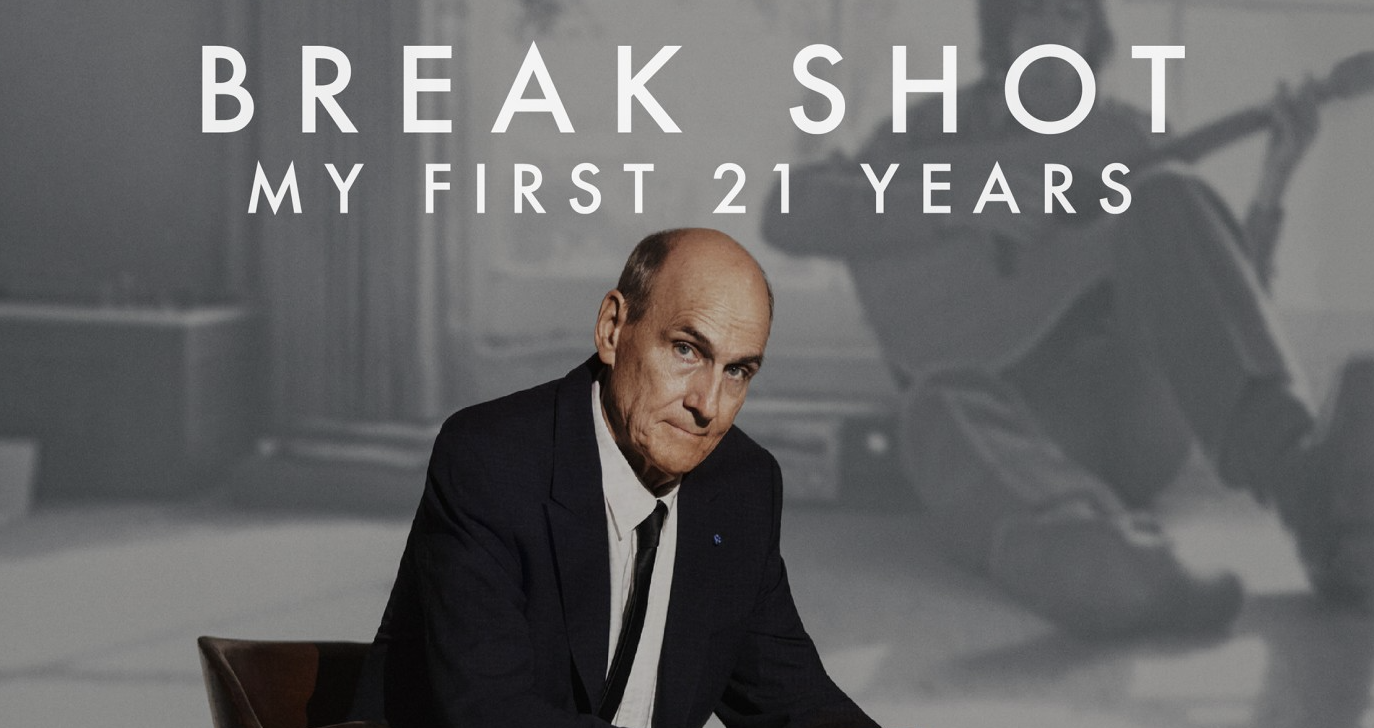Free for Audible Subscribers: James Taylor Releases a New Audio Memoir, and Michael Pollan a New Audio Book on Caffeine

This is a very quick FYI for anyone who happens to be an Audible subscriber. If you're not, you can start a free trial here.
This month, all Audible members can get free access to James Taylor's new short memoir called Break Shot: My First 21 Years. Read by James Taylor himself, the book revisits the musician's turbulent childhood and his emergence as an artist. It also features recorded music by the singer-songwriter.
In addition, Michael Pollan has released a new short audiobook, Caffeine: How Caffeine Created the Modern World. Read by Pollan, the book (only available in audio format) "takes us on a journey through the history of the drug, which was first discovered in a small part of East Africa and within a century became an addiction affecting most of the human species."
Both books are part of the Audible Originals program. So if you download them, you won't be using any of your monthly credits. They are free bonus material.
And now for an extra bonus: You can listen to Annette Bening, Jon Hamm, Matthew Rhys, Maura Tierney and others read "The Senate Intelligence Committee Report on Torture." It's free for all--whether you're an Audible subscriber or not.
To sign up for an Audible free trial, click here.
Would you like to support the mission of Open Culture? Please consider making a donation to our site. It's hard to rely 100% on ads, and your contributions will help us continue providing the best free cultural and educational materials to learners everywhere.
Also consider following Open Culture on Facebook and Twitter and sharing intelligent media with your friends. Or sign up for our daily email and get a daily dose of Open Culture in your inbox.
Related Content:
Download a Free Audio Book From Audible.com
1,000 Free Audio Books: Download Great Books for Free
Get Two Free Audiobooks from Audiobooks.com
Free for Audible Subscribers: James Taylor Releases a New Audio Memoir, and Michael Pollan a New Audio Book on Caffeine is a post from: Open Culture. Follow us on Facebook, Twitter, and Google Plus, or get our Daily Email. And don't miss our big collections of Free Online Courses, Free Online Movies, Free eBooks, Free Audio Books, Free Foreign Language Lessons, and MOOCs.
from Open Culture https://ift.tt/3bbrzA5
via Ilumina
Comments
Post a Comment